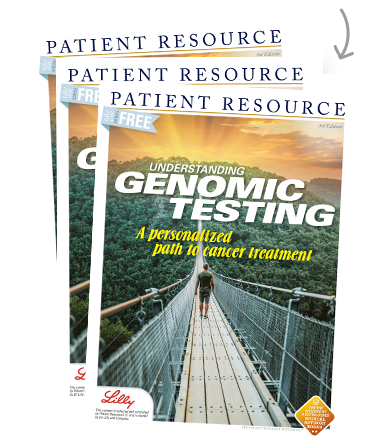Understanding the Genomics and Genetics of Cancer
Meet Your Team Members
Highly skilled health care professionals will examine, treat, educate, guide and comfort you. Your team may include the following:
- Case managers and social workers act on your behalf by collaborating with health care professionals and non-medical personnel to help you overcome various barriers to care.
- Financial counselors address cancer-related financial concerns, such as insurance coverage and out-of-pocket expenses.
- Genetic counselors explain what your test results may mean to you or your family.
- Medical oncologists treat cancer patients using drug therapies and manage your course of treatment.
- Molecular pathologists, also called genomic pathologists, study tissue and blood samples on a molecular level to provide information about your diagnosis, treatment and prognosis.
- Nurse navigators collaborate with your health care team from diagnosis through survivorship and will know you the best.
- Oncology nurses may be registered nurses, clinical nurse specialists, advanced practice nurses, radiation therapists, chemotherapy nurses, oncology social workers, case managers, educators or consultants.
- Pathologists identify diseases by studying cells and tissues under a microscope.
- Pharmacists prepare and dispense prescriptions, ensure medicines and doses are correct, and prevent harmful drug interactions.
- Radiation oncologists use radiation therapy to treat and reduce the symptoms of cancer.
- Radiologists create and interpret pictures of areas inside the body that are made with X-rays, sound waves or other types of energy.
- Rehabilitation specialists include physical, occupational and speech therapists.
- Surgical oncologists use surgery to remove tumors or repair a part of the body affected by cancer.



